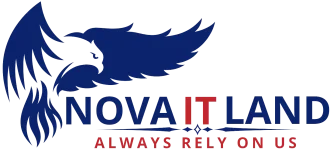Automattic Cuts WordPress Support Amid Community Backlash
In a move that has sent shockwaves through the WordPress community, Automattic, the company behind WordPress.com, has announced a decision to scale back support for its widely used open-source platform. The news stirred extensive discussion, especially against the backdrop of longstanding trust among WordPress developers, users, and contributors. This development, coupled with accusations fueled by community backlash, raises questions about the future relationship between Automattic and the WordPress community.
For business owners and creative decision-makers, navigating changes in platforms like WordPress highlights the importance of using trusted business services to ensure website and application stability.
The Current Landscape: Why Automattic’s Decision Matters
The WordPress ecosystem has always been dynamic, evolving around the contributions of both private stakeholders and open-source advocates. At its core, WordPress is a collaborative project that thrives on feedback, involvement, and transparency. Automattic’s decision to cut direct WordPress support disrupts this delicate balance, a move that many believe conflicts with open-source values.
The backlash stems from community members voicing concerns over diminishing support and what they interpret as diminishing accountability. For an open-source project trusted by 43% of all websites worldwide, governance and community satisfaction are paramount. (Source: Wikipedia).
Understanding the Backlash
Automattic’s announcement coincided with claims from developers about inconsistency in communication and perceived favoritism toward WordPress.com offerings. Critics argue that Automattic’s strong influence over the ecosystem sidesteps the community-built spirit that initially propelled WordPress to prominence.
Falling Trust: The Impact on Open-Source Collaboration
The open-source community thrives on shared responsibility. WordPress, as an open-source project, relies heavily on developers, contributors, and businesses that create plugins and themes. Cutting back on support has sent a ripple of uncertainty across small-to-medium enterprises and platform users alike.
Issues such as reduced customer support, prioritization of premium features, and the alleged marginalization of contributors have driven many users to evaluate their current setups. When platform reliability is questioned, businesses often consider digital marketing services to rebuild a robust online presence.
What Can Businesses Learn?
For business owners using WordPress or similar platforms, this controversy is not only a cautionary tale but also a chance to reevaluate their dependency on any single provider. Partnering with dedicated experts familiar with SEO and advertising services ensures your website remains optimized for growth, regardless of external changes.
Looking at the Bigger Picture: The Business Opportunity
While Automattic’s scaled-back support might seem like a roadblock, savvy business owners have an opportunity to reinforce their online strategies. By embracing full-scope business services and diversifying their approach to web design and hosting, businesses can remain resilient.
The internet is built on adaptation. Rather than hesitating, now is the ideal time to invest in comprehensive services like web app design and social media management that keep your brand visible and user-friendly despite platform-wide changes.
Proactive Steps for Businesses
- Audit your website: Regular health checks on your website reduce vulnerabilities and optimize performance.
- Strengthen hosting infrastructure: Evaluate hosting providers to ensure reliability and support whenever major changes occur.
- Maintain a cross-platform presence: Diversification minimizes reliance on a single source of traffic and engagement.
- Partner with specialists: Agencies skilled in SEO and development can bridge the gap during periods of transition.
The Road Ahead for WordPress Users
Automattic’s decision may shift how businesses and individual developers interact with WordPress, but it need not define the community. For the tech-savvy and forward-thinking, this could inspire innovation—both on and off the WordPress platform.
As businesses make decisions about their digital strategies, emphasizing collaboration with specialized teams can help. Whether you’re seeking optimized SEO campaigns, creative designs, or reliable hosting, an adaptable and multi-dimensional solution is key to staying ahead.
Final Thoughts
As Automattic scales back WordPress support amid community backlash, businesses must pivot toward long-term growth strategies that safeguard their digital footprint. By leveraging dedicated service providers and utilizing diverse tools for audience engagement, organizations can transform uncertainty into opportunity.

